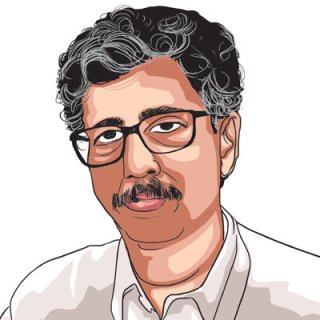Beyond temporary relief
Challenge for Ayushman Bharat will be to spur systemic change in healthcare.

Bharat Solanki, who turned 20 this year, lives in a slum along the eastern side of the rail tracks in Mumbai’s suburb of Bandra. He crosses everyday to the west of Bandra to work as an apprentice mechanic in a garage.
Last year, around the time Mumbai was in the grip of the Ganesh festival, Bharat started experiencing abdominal pain and weight loss. When several courses of tablets from obliging chemists did not help, he visited a local doctor. The doctor gave painkiller injections, which would reduce the pain temporarily. Later, when I got a chance to study his case papers, it was apparent that over two months Bharat had visited several doctors. This included multiple private clinics and also the public hospital in Bandra where I head the surgery department. He had been treated with symptomatic medicines and his pleas about the lack of response were ignored.
One night in October, Bharat woke up with excruciating pain and vomiting. His family rushed him to a nearby private hospital where after an X ray, they were informed that his intestine had ruptured and he would need urgent life saving surgery. And that the treatment could cost up to Rs 5 lakh and that they would not operate unless a deposit of a lakh of rupees was paid. The family ran around pleading for help. They requested the hospital to give them time to get the money but this was turned down. Eventually, Bharat was brought to our hospitals’ casualty. He was operated within a few hours. His belly was full of foul intestinal contents and there were two holes in his intestine. The abdomen was riddled with small white nodules suggesting tuberculosis. My colleagues tried to salvage the situation. However, just as we thought that the worst was over, we noticed bowel contents seeping out of his surgical wound. One of the devastating effects of TB and malnutrition is on the body’s ability to heal — one of the stitched holes in the bowel had opened out. Bharat needed multi-pronged care for what was now an intestinal fistula. This is a complication that puts huge demands on resources, which include very costly intravenous nutrition support. In India, this often means death for the poor.
Fortunately, Bharat had some things on his side — his youth, a treatable disease and committed family members. He also qualified for the Mahatma Jyotiba Phule Jan Arogya Yojana (previously the Rajiv Gandhi Jeevandayee Arogya Yojana), Maharashtra’s state-sponsored health insurance scheme. This enabled us to procure a specialised apparatus, which sucked out intestinal contents from the wound, costly antibiotics, intravenous TB drugs and nutrition solutions. Three months later, the hole slowly shrunk and finally closed. After three long months in hospital, Bharat was discharged.







































No hay comentarios:
Publicar un comentario